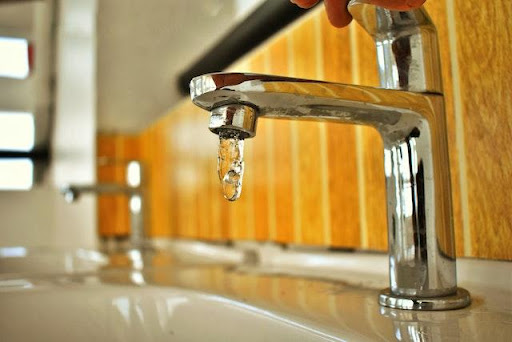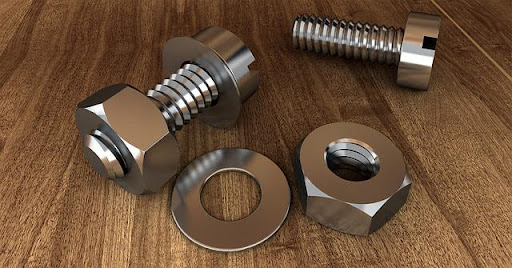
Bathtubs are one of those pieces of plumbing in your home you never expect to disappoint you. What could go wrong with a bathtub? As long as you keep it clean and rust-free, your bathtub should not have any problems, right? Mostly true but not entirely true.
While they may not damage easily, RCPM team warns bathtubs do have accompanying fixtures that are not so resilient. These oft-ignored features contribute to the safety, convenience and usefulness of the bathtub. You would not enjoy your bathtub if these fixtures were broken.
That’s why in this post, we talk about nine essential bathtub parts that you should keep handy in case of emergencies.
9 bathtub parts to have at home in case of emergencies
The spout
The spout is a prominent part of the bathtub’s design. Its purpose is aesthetic – contributes to the overall appeal of the bathtub, and functional – helps direct water into the tub. The bathtub spout can get worn or damaged with time and this can affect its function. Having a replacement spout on hand can help you avoid inconveniences while maintaining the appearance of your bathtub.
Handles
Handles let you enter and exit the bathtub safely. They also enhance the appearance of your bathtub. Due to how often they are used, handles are easily damaged. They are also vulnerable to corrosion. Loose or broken bathtub handles are easily replaced. Installing new handles is also an easy way to update the look of your bathtub.

Having replacement faucets on hand ensures you never have to endure problems with this essential bathtub fixture.
Faucets
Faucets provide water and also help to control the temperature of the water. You can use them to add soap and other products to bath water. Having replacement faucets on hand ensures you never have to endure problems with this essential bathtub fixture. Even if they are still in good condition, you may want to replace your faucets to improve the appearance of your bathtub.
Washers and O-Rings
Rubber washers and O-rings fit between the internal pieces of the tub and its fixtures. These small components help the bathtub and bathtub fixtures maintain their tightness; loose parts accelerate wear and tear on plumbing fixtures. Washers and O-rings help to improve the overall performance of your bathtub by preventing leaks and other problems. Washers and O-rings come in various sizes; make sure you have the proper sizes for the various fixtures of the bathtub.
Faceplate
The faceplate prevents the bathtub from overflowing. An overflowing bathtub will easily flood your home and damage your flooring, appliances and the bathtub itself. The faceplate not only prevents this but it contributes to the overall finish of your bathtub. The bathtub’s faceplate can lose its effectiveness and its appeal. Having a spare faceplate at home is essential, and you don’t need advanced plumbing skills to replace this fixture.
Gasket
This is a small rubber ring similar to a washer. Instead of being found in the faucet or spout, the gasket sits inside the bathtub drain. Gaskets help drains retain their function; if they dry out or crack, the drain will leak. A leaky drain is often fixed by simply replacing a damaged gasket. Keeping a replacement gasket at home means you can easily swap out a damaged gasket, saving your family from several inconveniences.

Screws, nuts and bolts can break, wear out, become stripped or come loose and drop into a drain opening. Having these tiny parts on hand means you can reattach any loose bits quickly.
Nuts, Bolts, and Screws
These are an assortment of tiny parts found inside virtually all fixtures of your bathtub. The right screw, nut or bolt is essential for keeping the parts of each fixture in place. Screws, nuts and bolts can break, wear out, become stripped or come loose and drop into a drain opening. Having these tiny parts on hand means you can reattach any loose bits quickly.
Drain kit
Although your bathtub is designed to last for years, the bathtub’s drain may stop working long before the tub reaches its end date. Clogs, leaks and corrosion are common problems that affect bathtub drains. A spare bathtub drain kit is something to have in your home, in case the existing drain fails. Adding a new and better type of drain kit is another way to improve the performance of an existing bathtub.
Valves
Sometimes you only need to replace the damaged gasket inside a valve assembly. Other times you need to replace the entire valve assembly. Most bathtubs have two kinds of valves; shut-off valves and diverter valves. These are used to either turn off the water or redirect its flow. Although valves don’t fail as easily as some other components, having a spare valve assembly in your home is recommended. Note that replacing an entire valve is a job best left to a local plumber.
To conclude, before buying any of the above parts, take the time to note your bathtub’s specifics, so you can avoid buying the wrong parts. If you are having a hard time deciding the right parts for your bathtub, you may want to ask a nearby plumber for help.